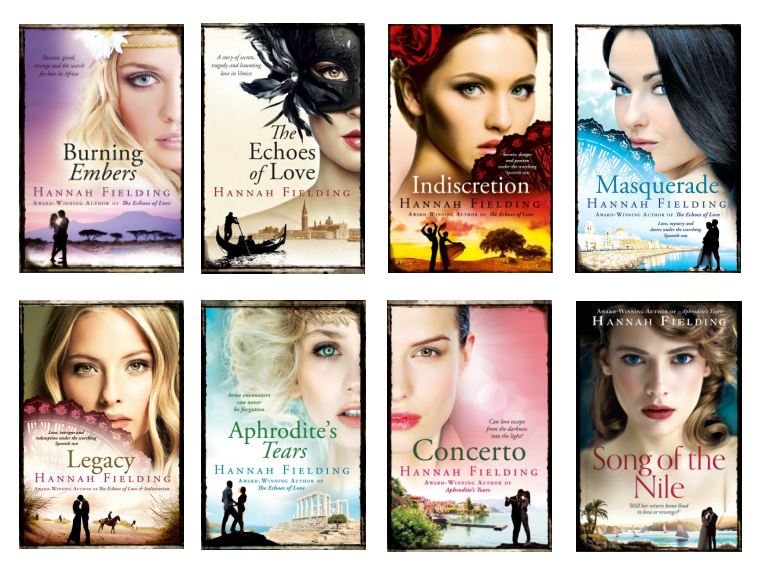The secret life of a novelist
The secret life of a novelist
The secret life of a novelist
-
Hannah
-
Hannah

For many years, since childhood in fact, I was a writer. I wrote stories, many of them. Being a writer wasn’t quite The Dream for me, though: an avid reader of books, I yearned to write a novel. Eventually, when the time was right for me, I put pen to paper, and I wrote my first novel, Burning Embers.
Was I now a novelist, then? No, I didn’t feel I’d quite earned that title, for I’d written only one book.
The dictionary definition of ‘novelist’ is a person who writes novels. Plural. For me, The Dream was not simply to write a book. So goes the common adage, everyone has a book in them; but I was sure I had more than one. Many more! I wanted to write and write. I wanted someday to have a shelf in my home filled with novels bearing my name on the spine.
So it was that I wrote my second novel, The Echoes of Love, and then, as I edited that novel, I secured a publishing contract for Burning Embers. The rest, as they say, is history: since then I have lived my life to a rhythm of write-edit-publish: I have eight novels in publication, and more in the pipeline.

I am a novelist, and my heart sings at this knowledge.
When I dreamed of writing like this, I imagined spending much time imagining and writing. But there is much more besides to my life as a novelist, and some of it I did not foresee. Today, I am giving you a glimpse of what it’s like to write novel after novel. Perhaps you’ll find some surprises here.
There’s no off-switch for inspiration
Once you open the door to ideas, you can be swept away in a deluge; once you let the muse speak, she may clamour for your attention morning, noon and night! When I am writing a novel, it can be consuming, making it difficult to go about my usual daily activities. I may be eating a meal with my husband but be thousands of miles away in my mind, thinking through a scene between my heroine and hero.
Research is fascinating – and distracting
Culture, history, mythology, architecture, scenery – these aspects, and many more, are on my list to explore when I’m planning a new novel. I love this stage of the writing process, and I can easily go deep into the research, delving into details that I don’t remotely need to know for my novel. It can be difficult to stop and just get on with the writing!
Your characters have a mind of their own
I always plan my books before I start writing. I like to know where the story is going, and I find planning makes the writing much easier and more enjoyable. However… sometimes it seems my characters haven’t studied their copy of this plan. They can surprise me a little with an action or reaction. When this happens, I have learned to stand aside and let my character speak. We usually find our way back to the plan quite quickly that way, and with a new aspect or layer to the story that I would not have imagined otherwise.

Little parts of yourself find their way into the writing
I once read an article about the Italian writer Elena Ferrante, who famously kept her identity a secret because she didn’t feel it was relevant to the writing. ‘All you need to know about me,’ she said, ‘is in my books.’
These words have stayed with me ever since. Through their novels, authors reveal aspects of themselves; in this sense, we write what we know. We do this knowingly, of course: through reading my novels you will know that I am a romantic, for example. But we also reveal little parts of ourselves less overtly and even subconsciously: experiences or feelings or thoughts we have had can creep into the words. Often, I only realise I have done this after the writing stage, when I am editing: I read something back and think, oh yes, that’s a Hannah moment.
Trusting yourself is key
The Romantic poet William Blake wrote, ‘First thought is best in Art, second in other matters’. In other words: when being creative, what flows from you first, when you are in the ‘zone’, is invariably best; if you rework and fiddle and agonise endlessly over art, you risk ruining it.
Having written more than eight novels now, I feel I am experienced enough to agree with Blake. Once I have done my research and made my plan, I trust myself to write. I sit down at my desk, alone and in the quiet, I breathe… and I let the words come.
Later, of course, I will edit what I wrote, but always respectfully. I do not need to rewrite rigorously; I trust myself as a writer, as a novelist.

You have to love what you’re writing
Here’s another insightful quotation on writing:
No tears in the writer, no tears in the reader. No surprise in the writer, no surprise in the reader. – Robert Frost
I would add to this: No passion in the writer, no passion in the reader.
I have learned to write only when the words are really flowing and my heart is glad to be living this dream of being a novelist. I am disciplined with my writing time; each morning I have a cup of herbal tea and then go to my desk to write until lunchtime, for example. But if it’s one of those days when life gets in the way and the words just aren’t coming easily, I won’t force it. It’s important to love what you’re writing, I think, or how can the reader be expected to enjoy it?
You ache to write the next book
Writing is hard, really hard. At times glorious, but often exhausting, consuming and exposing. As Ernest Hemingway said, ‘There is nothing to writing. All you do is sit down at a typewriter and bleed.’ So why keep on writing? Why write the next novel?
The simple answer is, because it’s who you are. One day, your dream came true: you finished a manuscript, and in doing so you became a novelist. Now, that is part of who you are, part of how you define yourself – with pride.
When you finish one book, you ache to write the next. Not always at once; there can be a period of rest and reflection. But invariably for me, the yearning will come. There is always more to be said, another story to tell, another truth to share. There is always the pull to, as Wordsworth put it, ‘fill your paper with the breathings of your heart’.
Even writing these words stirs my muse; she whispers to me. Where will she lead me next? The thrill of that discovery… it is wonderful.

Picture credits: 1) Kichigin/Shutterstock; 2) Dm_Cherry/Shutterstock; 3) ESB Professional//Shutterstock; 4) Everett Collection/Shutterstock.
Do your characters ever take on a life of their own or turn out a bit different to how you have thought at the beginning? I really enjoy your characters, the heroine always has had some trauma but ends up going through a healing journey and overcoming their fears (which the help of a handsome man of course!)
When is your next book due out? I am looking forward to reading another one of your novels!
Michelle
Thanks for commenting, Michelle.
I think at heart my characters remain as they first come to me, introduced by the muse, but sometimes they say something or do something that I wasn’t expecting, and I learn something new about them, a new layer if you like.
I’m hard at work on the next book! I don’t have a publication date yet, but I’ll be sure to share it on my blog and social media when I do.